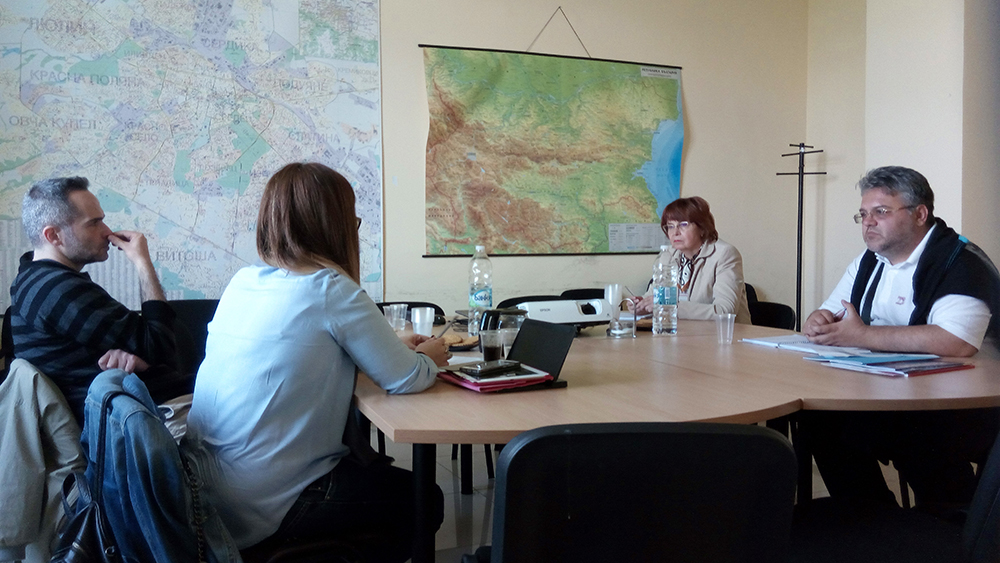During the country visits to FYRO Macedonia (December 2016), Croatia (March 2017) and Bulgaria (2017), DPNSEE membership was promoted as the potential for exchange, partnerships and joint work. Following these promotions, application for membership came from:
- Coalition ‘Sexual and Health Rights of Marginalized Communities’, Skopje, FYRO Macedonia
- Terra, Rijeka, Croatia
- Initiative for Health Foundation, Sofia, Bulgaria
In accordance with the Statutes, the DPNSEE Board supported the applications and called the Extraordinary Electronic General Assembly of the Network to vote about the applications.
The Assembly was held from 19 July at 14:00 to 20 July 2017 at 14:00. 12 out of 19 member organisations participated in the extraordinary General Assembly, all voting in favour of the proposals. The three organisations are now ordinary members of the Network which now has 22 member organisations in 11 countries.
 The Coalition “Sexual and Health Rights of Marginalized Communities” promotes protection and respect of the fundamental human rights of marginalized communities, with focus on LGBTI persons, drug users, people living with HIV, sex workers and marginalized women. The Coalition focuses on advocacy, research and analysis, inclusion of the marginalized communities in the creation and implementation of the policies, education of all the relevant actors, promotion of the cultural practices of the marginalized communities, as well as networking and building alliances with the civil society.
The Coalition “Sexual and Health Rights of Marginalized Communities” promotes protection and respect of the fundamental human rights of marginalized communities, with focus on LGBTI persons, drug users, people living with HIV, sex workers and marginalized women. The Coalition focuses on advocacy, research and analysis, inclusion of the marginalized communities in the creation and implementation of the policies, education of all the relevant actors, promotion of the cultural practices of the marginalized communities, as well as networking and building alliances with the civil society.
 Terra association is a non-profit, non-governmental organization established in 1998. on the initiative of a group of experts (medical doctors, pedagogue, psychologist, social workers) involved in work of several local institutions (Red cross, Clinic Hospital Centre in Rijeka) and foreign organizations (IFRC, UNHCR). At the end of 2000, the association initiated “Reduction of the health and social effect of drug abuse Program”) with the great emphasis on proactive education, field work and including different target groups, wider population and community on account of omnipresent problem of drug abuse. The program has been launched as an answer to the growing epidemic of addiction and a real threat of spreading HIV/AIDS among the addicts, that comes as a result of sharing used needles and cookers, and accordingly, by sexual intercourse, on wider population.
Terra association is a non-profit, non-governmental organization established in 1998. on the initiative of a group of experts (medical doctors, pedagogue, psychologist, social workers) involved in work of several local institutions (Red cross, Clinic Hospital Centre in Rijeka) and foreign organizations (IFRC, UNHCR). At the end of 2000, the association initiated “Reduction of the health and social effect of drug abuse Program”) with the great emphasis on proactive education, field work and including different target groups, wider population and community on account of omnipresent problem of drug abuse. The program has been launched as an answer to the growing epidemic of addiction and a real threat of spreading HIV/AIDS among the addicts, that comes as a result of sharing used needles and cookers, and accordingly, by sexual intercourse, on wider population.
 Initiative for Health Foundation is a non-governmental, non-profit organization, registered under the Bulgarian law. The mission of the foundation is to improve public health by supporting people in health and social risk to be better informed, more responsible and independent. Our goal is to prevent the spread of HIV through the development of evidence-based social and health services. We aim to be an autonomic, stable and recognizable organization with a highly competent team. We work for legislation change and for public and political support of our cause.
Initiative for Health Foundation is a non-governmental, non-profit organization, registered under the Bulgarian law. The mission of the foundation is to improve public health by supporting people in health and social risk to be better informed, more responsible and independent. Our goal is to prevent the spread of HIV through the development of evidence-based social and health services. We aim to be an autonomic, stable and recognizable organization with a highly competent team. We work for legislation change and for public and political support of our cause.




